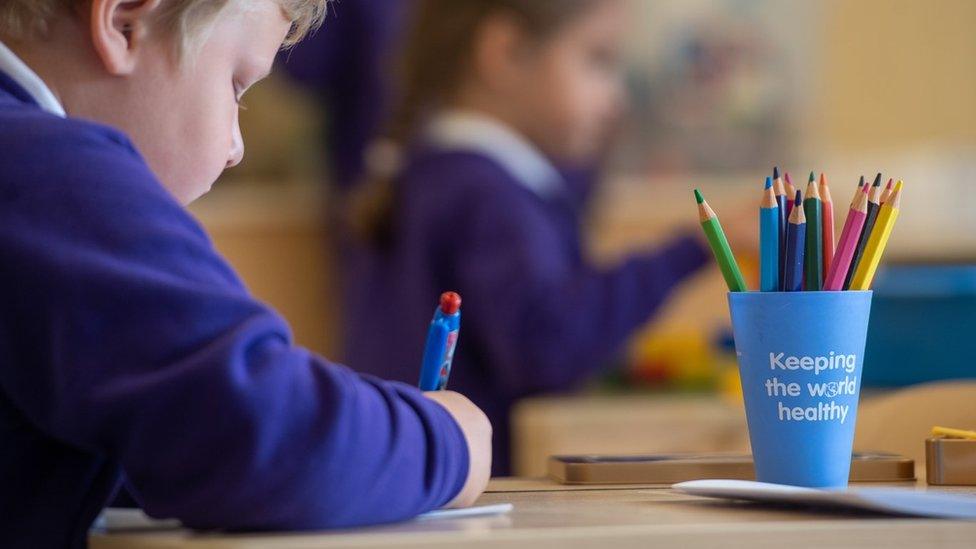Schools: Teacher prepared to strike despite feeling guilty
- Published
Teachers say pay battle is over future of education
A teacher said she's prepared to strike, despite feeling guilty about pupils who could lose out on education.
Lowri Lewis Williams, from Denbighshire, said strikes were needed to "safeguard the future of teaching".
It comes as teachers in Wales and other parts of the UK are being asked to vote on industrial action after being offered below-inflation pay rises.
It could lead to strikes in the new year after unions rejected a 5% pay offer from the Welsh government.
Union boss Neil Butler said the offer was "not good enough" and amounts to a 5% decrease given inflation.
Education Minister Jeremy Miles said the unions' demands were reasonable but a bigger increase was unaffordable.
The two biggest teaching unions start sending ballots to members this week, with others due to follow.
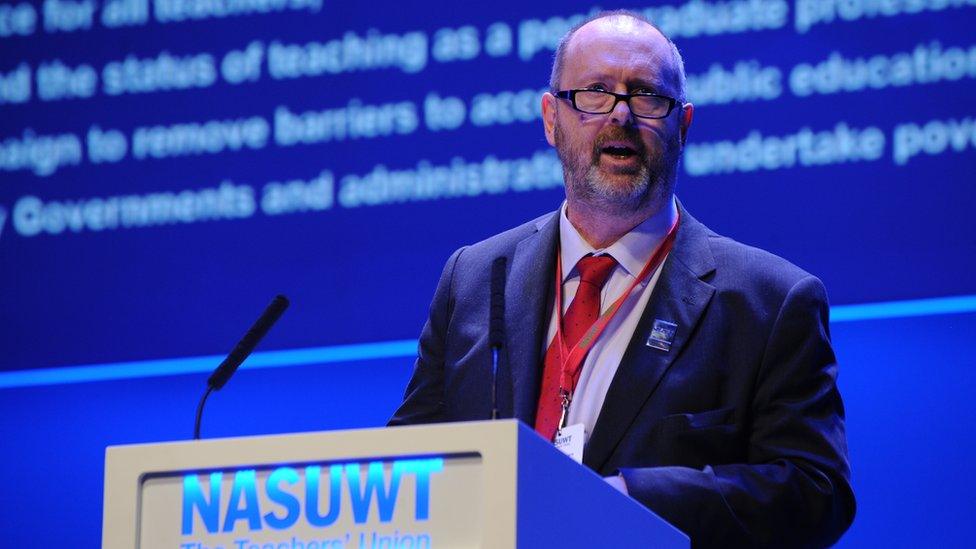
Neil Butler said moral in teachers is "extremely low" amid falling pay and increasing workloads
"Teachers have had their pay eroded by inflation for the last 12 years," said Mr Butler, of the NASUWT teachers union.
"In fact, teachers' pay has been eroded to the point of 25%, they've lost a quarter of their wage in the last 12 years, enough is enough."
How much are teachers being offered?
In July, the Welsh government accepted the recommendations of the Independent Welsh Pay Review Body, which said teachers should get a 5% pay rise this year with the possibility of a further 3.5% uplift next year.
It would mean starting salaries for new teachers would rise to £28,866, before rising to a minimum of £30,000 next year.
Teachers' pay depends on their experience and any extra responsibilities they take on - salaries for more experienced classroom teachers would rise to £44,450.
Analysis by the Institute for Fiscal Studies' Luke Sibieta suggested it amounted to a 3% pay cut after inflation and a 10% reduction since 2010.
Why are they unhappy?
"[Morale] is extremely low. And teachers are not just worried about their own positions, they're worried about the future of the education service," added Mr Butler.
"We think our ask is extremely reasonable, we want to sit around a table and say if you can't afford 12% what are you going to offer? Because 5% frankly isn't good enough."
Helen Johns, a teacher and union rep from Rhondda Cynon Taf, said their pay had dropped in value for the past 12 years.
"I feel very strongly that enough is enough," she said.
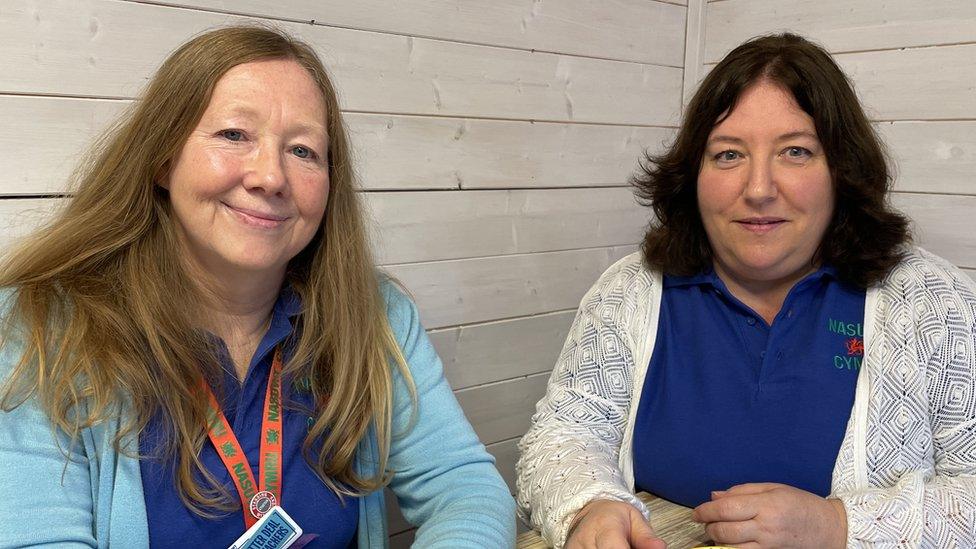
Helen Johns and Andrea Jones want to see change happen
"The system wouldn't run if there wasn't goodwill from teachers - and I think our goodwill has been taken advantage of.
"Youngsters aren't coming into the profession.
"If we don't stand up now I think we're selling teachers in the future down the river".
Using another measure of inflation, she said the actual drop in real terms was closer to 20%.
Andrea Jones, a secondary school teacher from Abercrave, Powys, said several teachers she knew left the profession recently for jobs less stress and more pay.
"We have people who are bringing in breakfasts for children, we have people who are bringing in clothes and they simply can't afford it.
"But they are trying to do the best for the people in their care."
With inflation currently running at 10% NASUWT, which represents Helen and Andrea, said the 5% pay offer would lead to "more financial misery for hardworking teachers".
The National Education Union, also due to start balloting this week, said members had been "undervalued for too long".
School leaders represented by the National Association of Headteachers will also be asked whether they want to take industrial action for the first time in their history.
They said the system was at breaking point because of the big reforms to education such as the new curriculum, combined with problems in recruiting and keeping staff and underfunding of schools.
What could it mean for pupils?
Most unions are balloting members on the possibility of strike action as well as industrial action short of a strike which could mean sticking to contracted duties only.
They said striking would be a last resort. The last large scale strike action was in 2008.
Parent Andrew Couvret, from Cardiff, said he hoped the pay dispute was resolved soon.
"My daughter's 13 and with all the time they've had off with Covid I don't think it's the best time to be doing it."
He said he appreciated the rising cost of living was having an impact "but I don't think it's in the best interests of the children".
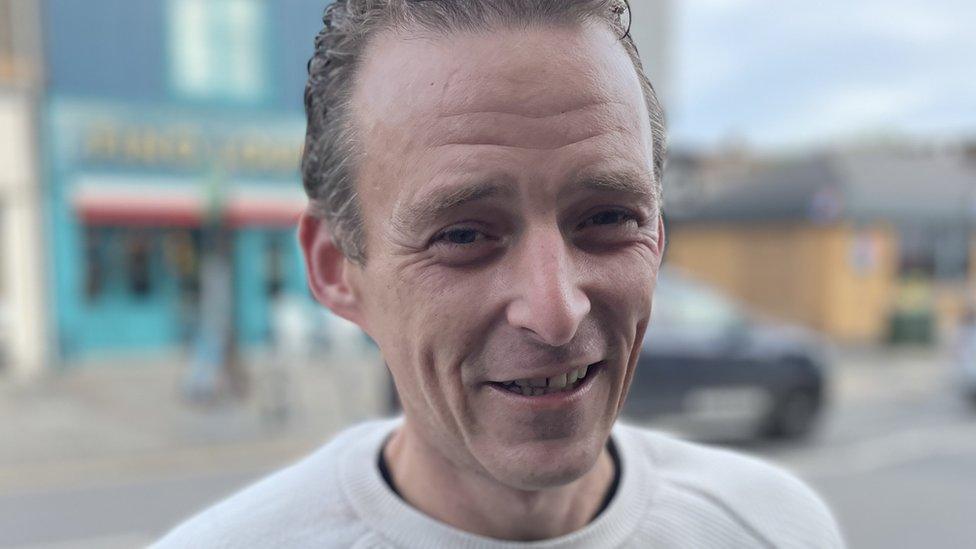
Parent Andrew Couvret is concerned about the impact on his daughter and other pupils
The importance of teachers should be recognised, according to Amy Owen, also from Cardiff.
"In order for them to do their job properly and feel valued they need to be paid properly."
What does the Welsh government say?
The education minister wrote to unions saying expecting pay to rise with inflation was "perfectly reasonable" but impossible without a big increase in the Welsh government budget.
"It is a disgrace the UK government has left us in such an impossible position," Mr Miles wrote.
In response, the Treasury said responsibility for funding public services was devolved.
"We have provided the Welsh government with a record £18bn per year for the next three years - the highest spending review settlement since devolution," a spokesman said.
Who pays?
Unions insist any pay offer should be fully-funded by government and not come out of individual school budgets.
It is not clear to what extent funding the pay offer will fall directly on schools rather than councils.
Mr Sibieta said "school finances will be extremely tight" with extra costs for pay on top of higher energy and food prices.

CHALLENGING MISCONCEPTIONS: Life in Britain’s biggest special school
BORN DEAF, RAISED HEARING: What it means to live in two different worlds

- Published14 October 2022
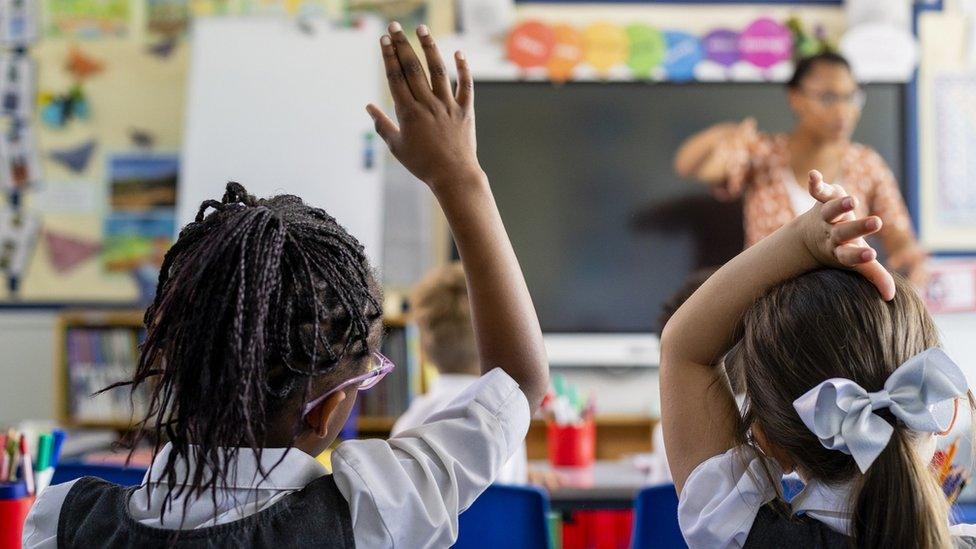
- Published12 August 2022
